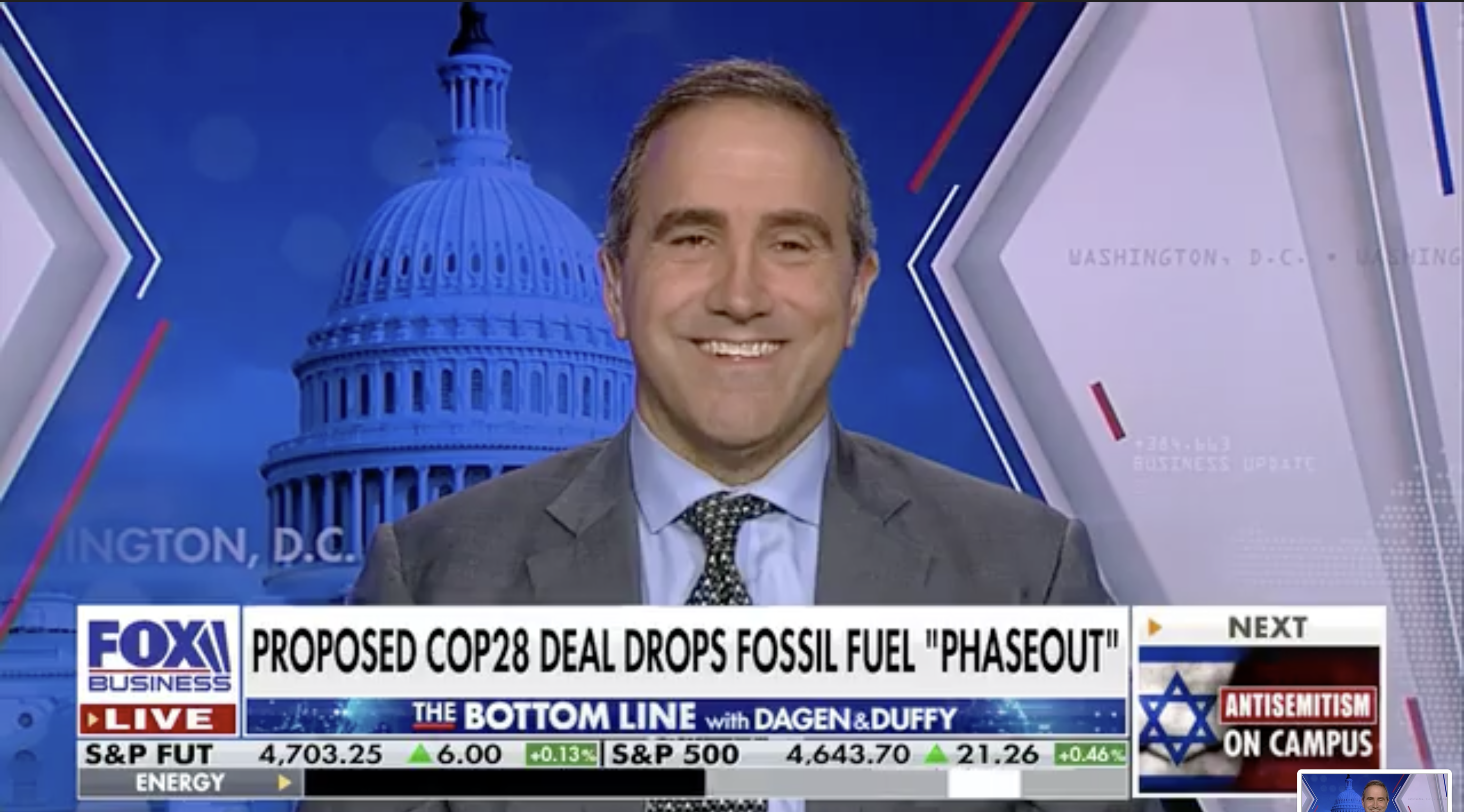African nation becomes ‘first country’ to outlaw entry of gas cars! EVs only! Ethiopia announces plans to ban import of gas-powered vehicles ‘to reduce its output of planet-warming pollution’ — But only 54% of people have ‘access to electricity’

https://www.thecooldown.com/green-business/ethiopia-ban-on-gas-vehicles/ By Kaiyo FunakiApril 6, 2024 Ethiopia announced earlier this year its plan to ban the import of all non-electric automobiles, becoming the first country to outlaw the entry of internal combustion engine vehicles. Electrek noted that specifics were scant but that the resolution served as a win for the nation’s environmental impact and economy. […]
French climatologist: Shift to renewable energy would make economic growth impossible – Solar & wind ‘will not allow us to maintain today’s modern industrial world’

https://notalotofpeopleknowthat.wordpress.com/2024/01/07/shift-to-renewable-energy-would-make-economic-growth-impossible-says-expert/ By Paul Homewood Even climatologists are beginning to realise that the emperor has no clothes! Economic growth as we know it is impossible if governments shift to 100 per cent renewable energy, a renowned French climatologist has said. Jean-Marc Jancovici, the author of World Without End, the graphic novel on climate change which has […]
Kenyan Biologist Mordecai Ogada: ‘The carbon credit story is — and I don’t say this lightly — is probably the biggest scam to ever be visited on mankind in history’
Kenyan Biologist Mordecai Ogada: "The carbon creditstory is — and I don't say this lightly — is probably the biggest scam to ever be visited on mankind in history" https://t.co/YgL8kM1rAP — Marc Morano (@ClimateDepot) January 6, 2024 2020: Kenyan Biologist: Nature Conservation Is ‘New Colonialism’ — Africa ‘A Place For White Elitists To Enjoy’
Biden launches war against single family homes: $530 million to force changes in building codes to fight climate – Home to be made ‘pointlessly more expensive & less comfortable’
Biden launches war against single family homes: 1. The Department of @Energy announced a $530 million grants program for states to change building codes because of global warming. 2. Green energy building codes would force new homes and buildings to be pointlessly more… pic.twitter.com/vIrQbREnEg — Steve Milloy (@JunkScience) December 20, 2023
Watch: Morano on Fox & Friends on ‘nature rights’ & ‘personhood’ for land, rivers & trees: ‘Humans are going to be reduced to the level of a rock, a river, or a plant’

Fox and Friends – Fox News Channel – Broadcast December 14, 2023


Morano on ‘nature rights’: “The Financial Times reported essentially about white-wealthy Western nations buying up land in Africa as ‘carbon offsets.’ So you have at least five African nations where 20% of their land is locked up. They can’t develop it based on some sort of sense of preserving nature rights.” See: Climate Colonialism: ‘The looming land grab in Africa for carbon credits’ – Western carbon offset companies look to lock up ‘a tenth of Liberia’s land mass, a fifth of Zimbabwe’s, & swaths of Kenya, Zambia & Tanzania’
Morano: “We all want a clean, healthy environment. But what they’ve done here is now giving voice to rivers, trees, and land, and obviously, they can’t speak for themselves. So, where is their voice coming from? It’s coming from self-important, self-appointed bureaucrats and activists who will speak on behalf of these inanimate objects.”
Morano on proposed jail time for using gas leaf blowers: “What’s next? Are they going to start threatening people with jail if you fly on a plane too many times? Because CNN is already promoting carbon passports so you can fly only a limited number of times. Are you going to jail if you drive a car that’s gas-powered? I mean, that’s where we’re headed.”
Africa suffers due to UN climate summit: 5 major African economies to be affected by fossil fuel phase-down – 1. Nigeria 2. Libya 3. Angola 4. Algeria 5. Egypt
https://africa.businessinsider.com/local/markets/5-major-african-economies-to-be-affected-by-fossil-fuel-phase-down/wl5lmsv By ADEKUNLE AGBETILOYE The Earth has become hotter, and so have the discussions to limit global warming. In the concluding weeks of the hottest year on record, the global body responsible for mitigating the impact of climate change urged nations to shift away from fossil fuels. Business Insider Africa presents 5 major African economies […]
We’re saved! African leaders agreed to keep Africans in poverty to save climate! African countries at COP28: ‘Africa has committed to net-zero emissions’!
We're saved! African leaders agreed to keep Africans in poverty to save climate! African countries at COP28: 'Africa has committed to net-zero emissions'! – "Many African countries link their development agenda to climate diplomacy." The African "continent is one of the lowest… pic.twitter.com/hD4ujJY6ha — Marc Morano (@ClimateDepot) December 17, 2023
‘It’s finished!’: IEA boss Faith Birol says COP28 bid farewell to fossil fuels – ‘200 countries have signed a document to say goodbye to fossil fuels’

‘It’s finished!’: IEA boss says COP28 bid farewell to fossil fuels –
International Energy Agency chief Fatih Birol: “Two hundred countries have signed a document to say goodbye to fossil fuels. The direction of travel is extremely clear. There is no way to change it now. Too late, it’s finished!”
UN climate summit “gave an unmistakable signal to investors that if you continue to invest in fossil fuels you may well have serious business risks…”
UN Celebrates! COP28 Agreement Signals ‘Beginning of the End’ of the Fossil Fuel Era – UN brags it is ‘ratcheting up climate action’
https://unfccc.int/news/cop28-agreement-signals-beginning-of-the-end-of-the-fossil-fuel-era UN Climate Change News, 13 December 2023 – The United Nations Climate Change Conference (COP28) closed today with an agreement that signals the “beginning of the end” of the fossil fuel era by laying the ground for a swift, just and equitable transition, underpinned by deep emissions cuts and scaled-up finance. In a demonstration of […]
Watch: Morano on Fox on COP 28: Believing we can abolish fossil fuels & a UN climate pact is going to save us ‘is literally psychotic’ – ‘Net Zero is a Soviet-style central planning technique that has to be roundly defeated’

The Bottom Line – Fox Business – Broadcast December 12, 2023


Morano on UN COP28 Climate Summit & Net Zero Goals of Fossil Fuel Phase-Out:
Morano: “Let’s say it out loud. Net Zero is a Soviet-style central planning technique that has to be roundly defeated. We need Republican leadership. We need the House Speaker. We need Mitch McConnell. We need them to do a Sense of the Senate, a declaration of Congress to declare Net Zero an anti-human agenda.
It’s one of the greatest farces that ever come from the United Nations — the idea that the UN is going to act as though they’re they can control the dial of the earth and control the temperature by crushing human energy and development. …
And just to go back to the whole big picture, 100 years ago, 80% of our energy came from fossil fuels. Today, 80% of our energy comes from fossil fuels both globally and in the US. The idea that we can get rid of fossil fuels in the next few decades and that the UN is going to save us or the idea that the Inflation Reduction Act is going to save us — is literally psychotic. It has no science or common sense behind it.”
